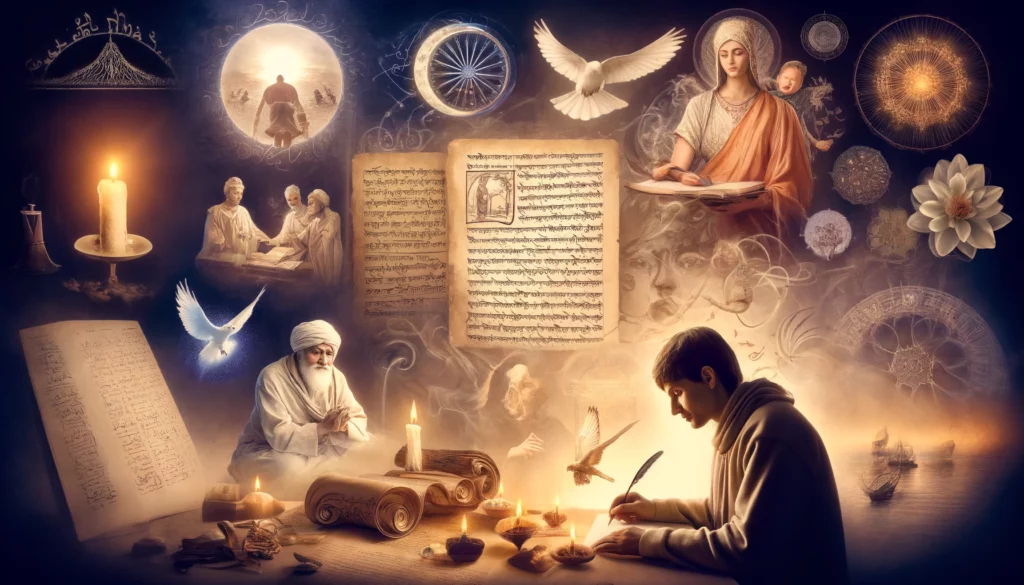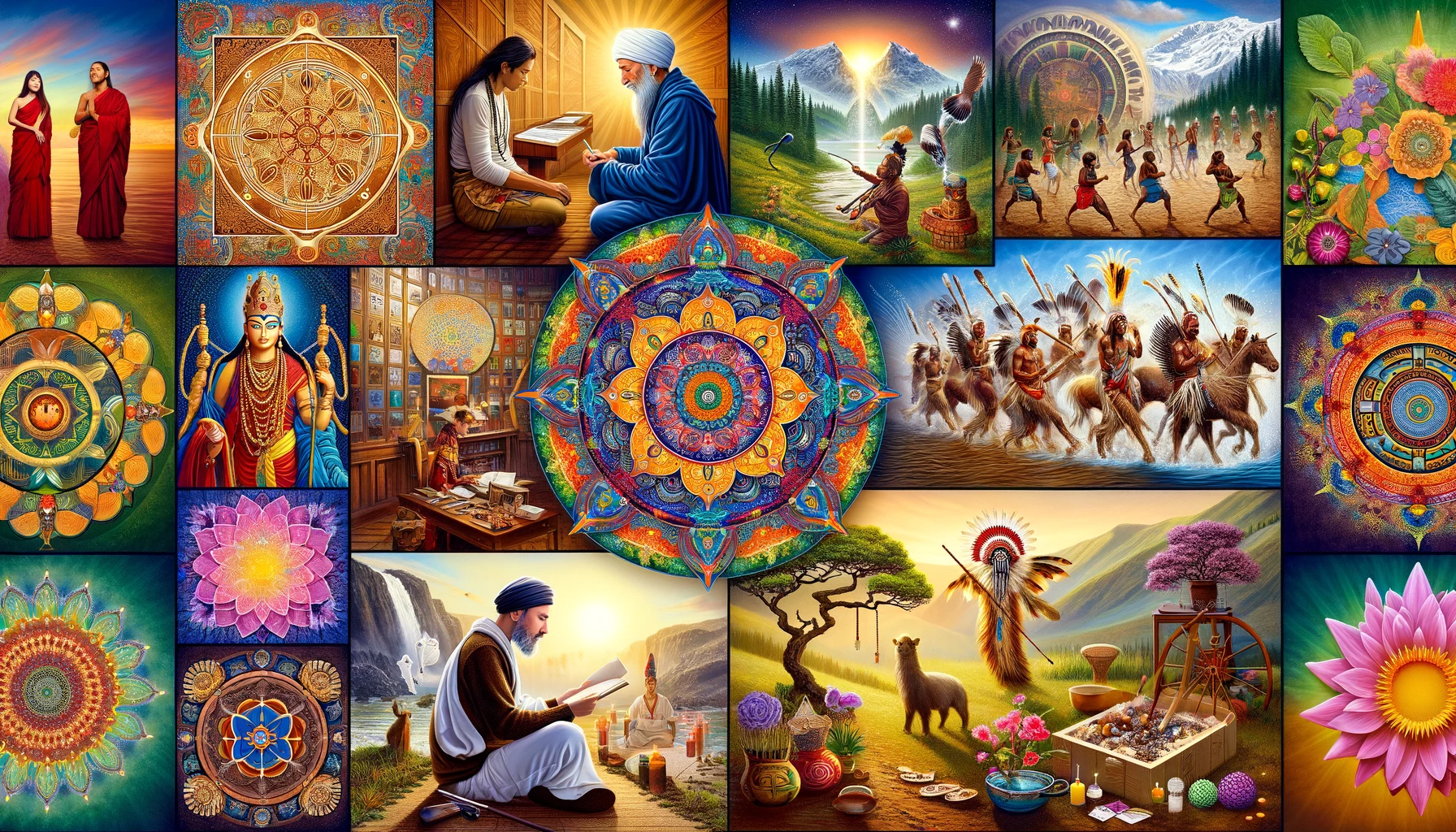
The Pen as a Spiritual Tool
Writing and Poetry
Writing and poetry offer profound ways to delve into the depths of our spirituality, providing a canvas for our thoughts, reflections, and emotions. Across various traditions, the written word has served as a bridge to the divine, capturing the subtleties of the spiritual journey and sharing insights that resonate across time and culture.
Sufi Poetry
The Language of the Heart
In the Islamic tradition, Sufi poetry stands out for its mystical and emotive expression. Sufi poets like Rumi, Hafiz, and Rabia Basri use metaphors and storytelling to convey their deep love for the Divine and their spiritual experiences.
- Example: Rumi’s poetry often explores themes of love, longing, and union with God. His famous lines, “The wound is the place where the Light enters you,” reflect the transformative power of spiritual growth and the beauty found in embracing one’s vulnerabilities.
Hindu Scriptures
Poetry in Sacred Texts
Hinduism’s sacred texts, such as the Vedas, Upanishads, and the Bhagavad Gita, are revered for their poetic form as much as their spiritual teachings. These texts blend philosophy, spirituality, and poetry to offer profound insights into the nature of existence, duty, and devotion.
- Example: The Bhagavad Gita, a dialogue between Prince Arjuna and the god Krishna, is written in verse. This epic poem addresses complex spiritual concepts through its lyrical and poetic structure, making profound wisdom accessible through beautiful language.
Christian Mystics: Poetic Visions
Christian mysticism has a rich tradition of using poetry to express the soul’s journey towards God. Mystics like St. John of the Cross and St. Teresa of Avila wrote extensively, their works blending theological depth with poetic beauty.
- Example: St. John of the Cross’s “Dark Night of the Soul” is a poetic narrative that describes the soul’s journey through trials and spiritual purification towards union with God. His vivid imagery and deep spiritual insights continue to inspire readers seeking spiritual depth.
Zen Haiku: Simplicity and Enlightenment
In Zen Buddhism, haiku poetry captures the essence of moments, reflecting the simplicity and profundity of spiritual insight. These short, three-line poems focus on nature and everyday life, distilling profound truths into simple, clear imagery.
- Example: Matsuo Basho, a renowned haiku poet, wrote: “An old silent pond… / A frog jumps into the pond— / Splash! Silence again.” This haiku encapsulates the Zen principle of sudden enlightenment, using nature as a metaphor for spiritual awakening.
Native American Storytelling
Oral Traditions in Writing
Native American spirituality often emphasizes the oral tradition, but many stories and teachings have been preserved in written form, capturing the wisdom and spiritual teachings of various tribes.
- Example: The “Tales of the North American Indians” anthology includes numerous stories that convey spiritual lessons through myth and legend. These narratives often incorporate themes of nature, animals, and the interconnectedness of all life, reflecting the spiritual beliefs of the Native American peoples.
Jewish Psalms
Songs of Faith
The Book of Psalms in the Hebrew Bible is a collection of poetic prayers and hymns that express a wide range of human emotions and spiritual experiences. These ancient texts continue to be a source of inspiration and comfort for many.
- Example: Psalm 23, “The Lord is my shepherd; I shall not want. He makes me lie down in green pastures…” uses pastoral imagery to convey trust and confidence in God’s guidance and care. The psalm’s poetic structure enhances its spiritual message, making it a timeless piece of spiritual literature.
Conclusion
The Power of the Written Word
Writing and poetry offer timeless ways to explore and express spirituality. Through the beauty of language and the depth of introspection, these creative forms provide pathways to understanding and connecting with the divine. Whether through the mystical verses of Sufi poets, the sacred hymns of the Vedas, or the contemplative haikus of Zen monks, the written word continues to be a profound tool for spiritual expression.
Shop Tips
Rumi poetry on Amazon
Bhagavad Gita on Amazon
Dark Night of the Soul on Amazon
Matsuo Basho on Amazon
Jewish psalms on Amazon
Ignite your Creative Soul and start your transformative journey with “Color of my Soul” today, by embracing the vibrant colors of your inner world!


